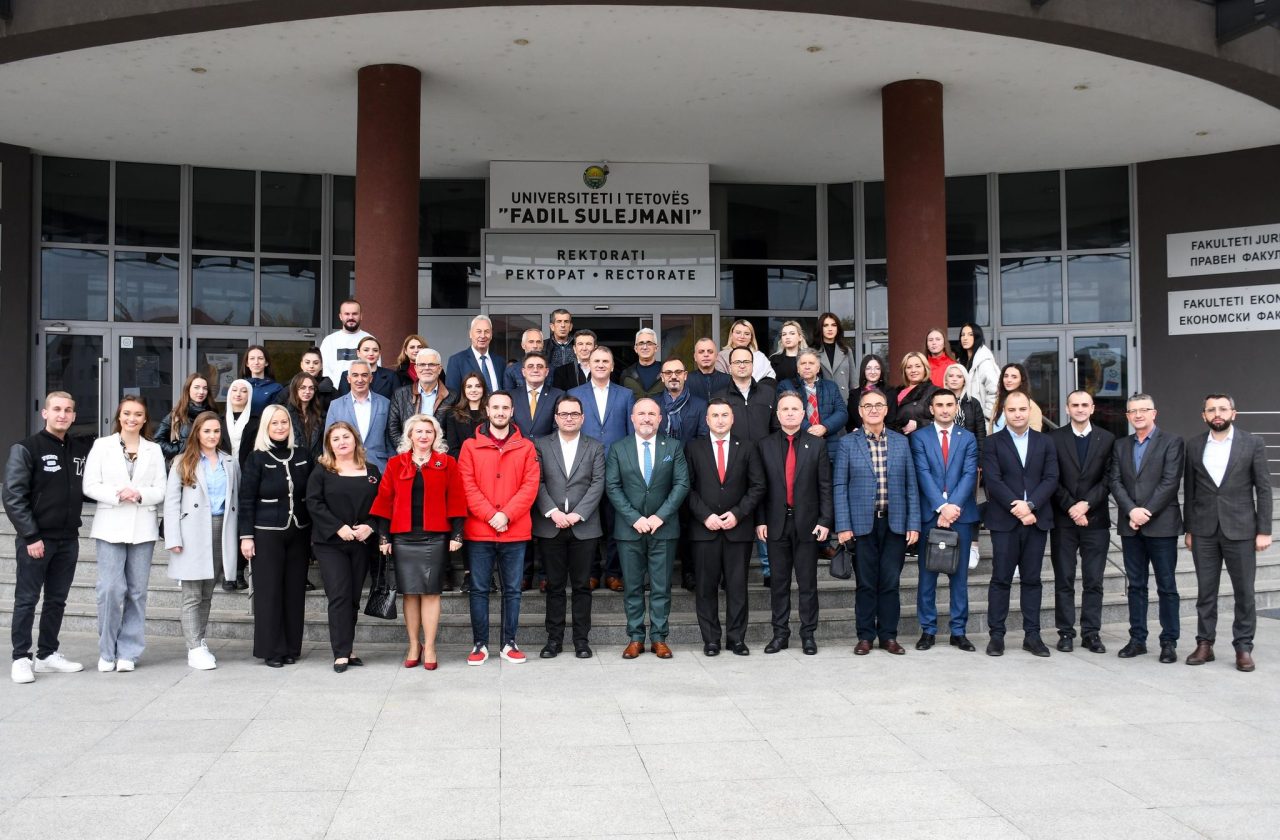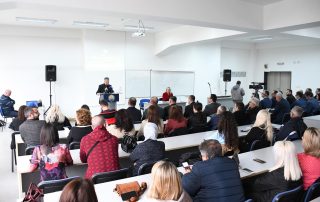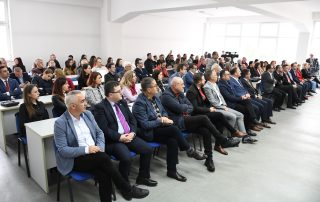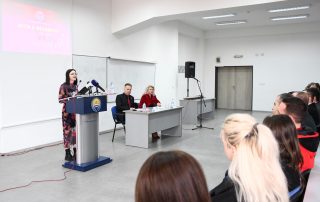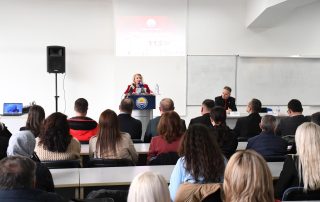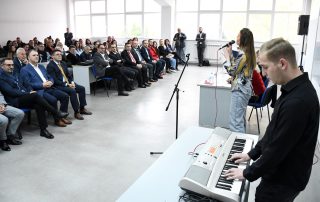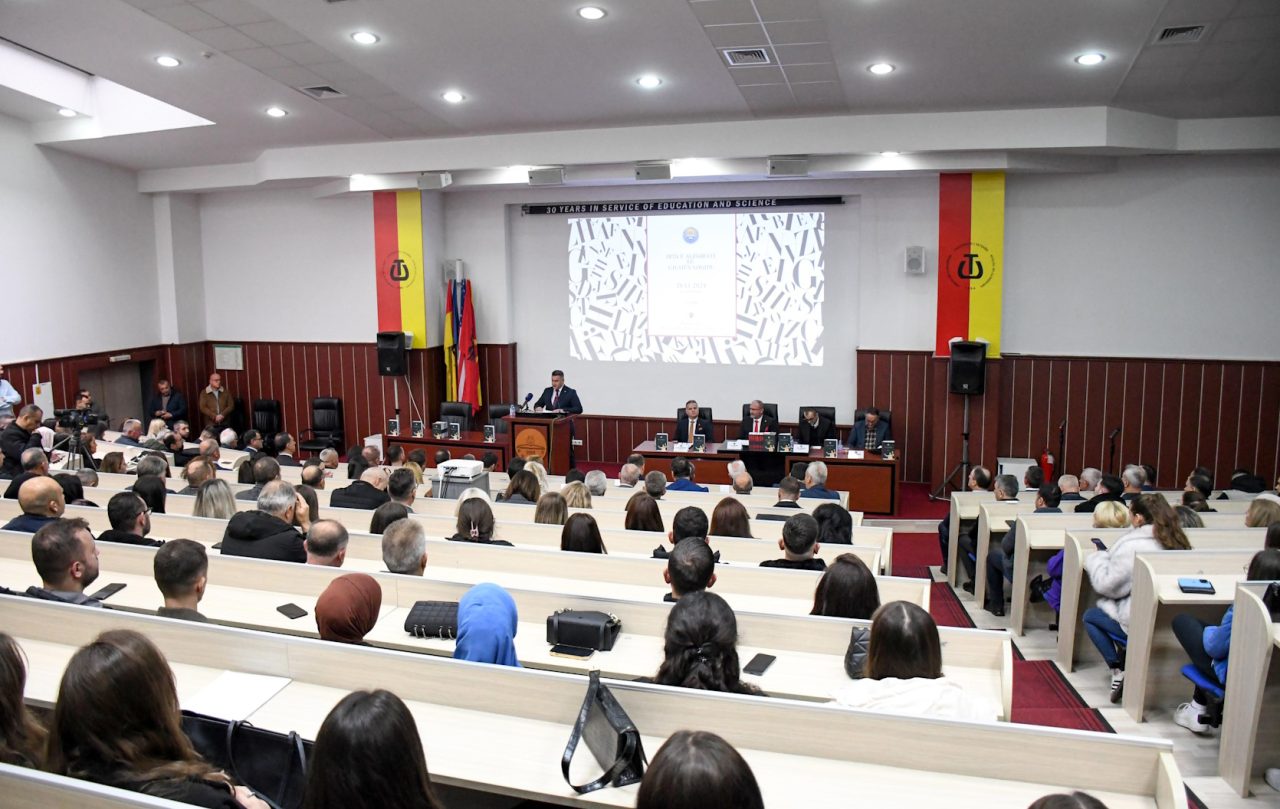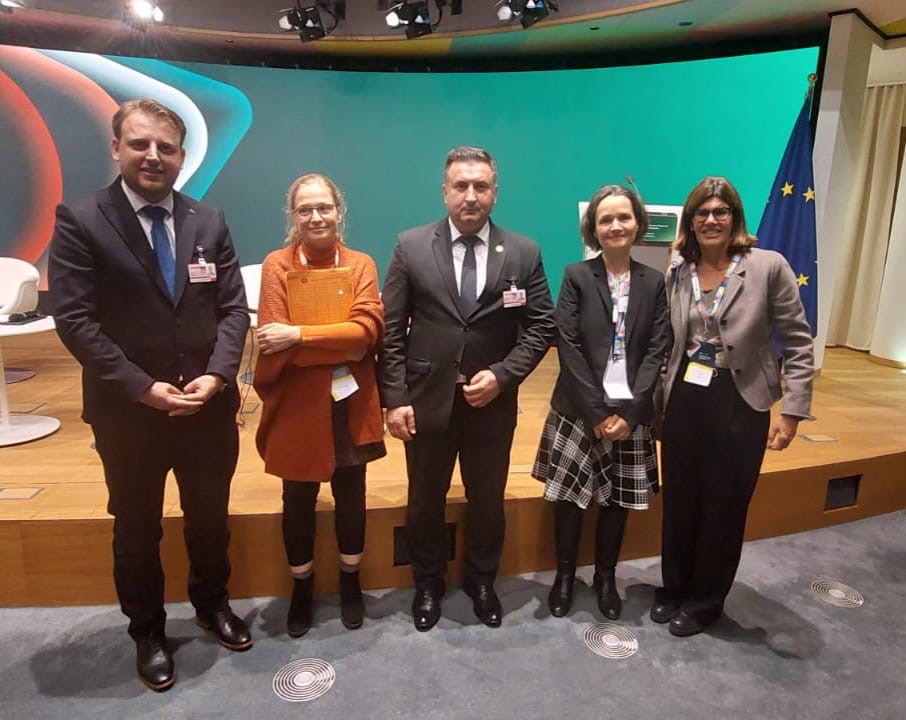The University of Tetovo, specifically the Faculty of Philology, today commemorated the 115th anniversary of the Congress of Manastir through a solemn academy. This congress is considered one of the major historical and cultural events for the Albanian nation. This day reminds us of all our patriots who faced hardships, persecutions, and suffering to resolve one of the most significant issues in our culture—the unification of the Albanian language alphabet.
The Dean of the Faculty of Philology, Prof. Dr. Berton Sulejmani, in his speech on this solemn occasion, emphasized that the Congress of Manastir had great importance not only for the alphabet and the national literary language but also for education and culture. He also highlighted its significance for the Albanian National Movement as a whole. “It is rightfully said that, after the League of Prizren, this is the assembly that brought together Albanians from all regions of our country, giving the first signal for the national independence of the Albanian people. Additionally, for the first time in our history, it opened the path for congresses to discuss major issues of our culture. The letters of the Albanian language are part of the Latin alphabet, but the writing system and graphic system of Albanian have some characteristics that give it a distinct character. To demonstrate that even the Albanians of these regions (today North Macedonia) have also addressed issues related to the Albanian language alphabet, I will conclude this speech with an assessment of Prof. Dr. Petro Janura (founder of the Department of Albanianology in Skopje (1951), as well as the first editor-in-chief of the newspaper “Flaka e vëllazërimit”( The flame of Brotherhood) in 1945)) who fifty-four years ago, in his work titled “From the history of the alphabet of the Albanian language,” published in Skopje in 1969, he wrote: “Today’s alphabet, was prepared over centuries by enthusiasts of writing and Albanian culture, officially it was stylized in its definitive form and put into effect in 1908, a date that was ratified from 1912, even though no order was given on these dates, the ethics of national integrity, which brought forth these dates, became an order for this alphabet to be universally accepted,” said, among other things, the Dean of the Faculty of Philology, Prof. Dr. Berton Sulejmani.
Meanwhile, Prof. Dr. Zejnepe Alili-Rexhepi presented a paper on the topic: “The Congress of Manastir – the unification of the alphabet and the importance of the language.” She declared that the decisions of the Congress of Manastir demonstrated that the Albanians had consolidated as a united nation around a common aspiration to progress economically and culturally, and to assume their place as a European people within the large family of civilized nations in Europe. “At the foundation of this concept was always the protection of the ‘genus’ lineage, where the spoken language is the defining element, while the written one, a relic that endures over time, ensures our immortality as a nation! Language remains the most important in the collection of national symbols, so Albanians throughout the centuries have carried the vital dream: one language, one nation, one homeland. In the project of unifying the language and national symbols, the Frasheri brothers, Asdreni, Çajupi, Fishta, Noli, Konica, and the entire array of the Renaissance figures, whose leitmotif was: a free homeland is the essence of the idea of Independence, with the vital symbol being the Albanian language. The efforts of contemporary intellectuals to elevate this language imply a national cultural collaboration, fundamentally aligning with the ideas of the Renaissance figures who aimed to have a common educational and patriotic action, to enhance national potentials around a shared goal, both in the political and cultural spheres. This demonstrates that, at all times, Albanian creative values, regardless of where they originate, reflect sensitive variations of patriotism, where the national exposition is clearly manifested. Through a language of praise, as in the verses of the poet Gjergj Fishta, the epic of our people rises, highlighting our entire national essence,” emphasized Prof. Dr. Zejnepe Alili-Rexhepi, among other points.
This activity was enriched with an artistic component. Initially, Altina Sulejmani, a student in the Albanian Language and Literature study program, recited the poem “Gjuha shqype” (Albanian Language) by Gjergj Fishta, while students from the Faculty of Arts, Melisa Loki and Abdulla Xhaferi, performed a musical piece.

